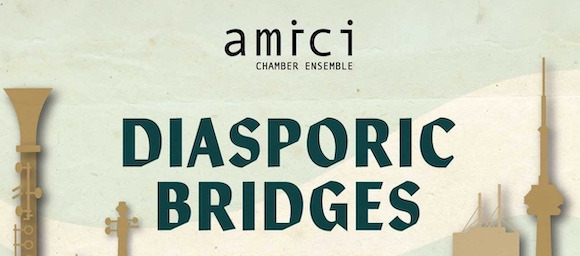 This is not intended as a a political blog though, art being what it is, it sometimes is. That said, these are not normal times and sometimes a political stand has to be taken. We stand in solidarity with the people of Ukraine and condemn in the strongest terms the current aggression by the fascist regimes in Moscow and Minsk as well as their enablers and supporters in the United States and elsewhere.
This is not intended as a a political blog though, art being what it is, it sometimes is. That said, these are not normal times and sometimes a political stand has to be taken. We stand in solidarity with the people of Ukraine and condemn in the strongest terms the current aggression by the fascist regimes in Moscow and Minsk as well as their enablers and supporters in the United States and elsewhere.
Excellent Don Pasquale from the Ensemble Studio

Alex Halliday
Tuesday night at the Four Seasons Centre it was the turn of the Ensemble Studio cast to give us Donizetti’s Don Pasquale. It’s the same Barbe et Doucet production of course but director Marilyn Gronsdal, conductor Simone Luti and an excellent cast definitely gave it their own twist. Everybody seemed to have their own bit of business that we didn’t see on opening night and they all worked.
Alex Halliday, in the title role managed the far from easy feat of portraying a man more than twice his age. He was splendidly doddery and even managed to give his voice an older timbre. All of this on top of an excellent vocal performance making short work of all the silly patter songs including the duets with Korin Thomas-Smith’s Malatesta. His was a fine and individual performance too. His singing was very good indeed but I think it was his physical exuberance that made it special. Continue reading
Something to Crow about
 Season announcements for theatre companies for 2024/25 are coming out fast and one notable thing is that a number of shows from Crow’s Theatre have been picked up by other companies. Both Pierre, Natasha and the Great Comet of 1812 and Fifteen Dogs have been picked up by Mirvish (as Uncle Vanya was this season). Soulpepper have picked up The Master Plan which will also be seen in Hamilton. I’ve linked to my reviews which are enthusiastic about all except Pierre, Natasha. That was a huge hit, especially with people who like Broadway musicals more than I do and, as the prologue warns, it wasn’t written for opera fans who have read War and Peace three times so my views should be viewed through that lens.
Season announcements for theatre companies for 2024/25 are coming out fast and one notable thing is that a number of shows from Crow’s Theatre have been picked up by other companies. Both Pierre, Natasha and the Great Comet of 1812 and Fifteen Dogs have been picked up by Mirvish (as Uncle Vanya was this season). Soulpepper have picked up The Master Plan which will also be seen in Hamilton. I’ve linked to my reviews which are enthusiastic about all except Pierre, Natasha. That was a huge hit, especially with people who like Broadway musicals more than I do and, as the prologue warns, it wasn’t written for opera fans who have read War and Peace three times so my views should be viewed through that lens.
A Prism of Sound
Saturday night’s concert by the Cantabile Chamber Singers, with their conductor Cheryll J. Chung, at Church of the Redeemer; entitled A Prism of Sound, was the last of their 2023/24 season and, I think, the first time I’ve seen this particular choir. It was an all Canadian programme. The first part consisted of works by various choral composers like Matthew Emery and Peter Togni and it was all tonal works for unaccompanied choir on, basically, liturgical texts. It was pleasant enough but, for me at least, after a while one Ave Verum Corpus sounds much like the rest. I surprised myself by really quite liking Emery’s Sweetest Love which was quite complex and rather overturned my previous impressions of his music. I also enjoyed Eleanor Daley’s setting of an extract from the Song of Solomon; Upon Your Heart. But maybe that’s because the text has special resonance for me. No complaints about the performance though. They are a very good choir.

What does Hedda seek?
What does Hedda seek? I think that’s the question at the heart of Liisa Ripo-Martelli’s adaptation of Ibsen’s Hedda Gabler that opened at Coal Mine Theatre on Thursday evening. It’s not heavily adapted. It’s still Kristiania in the late 19th century and the environment is as dull, provincial, stuffy and “respectable” as can be. The language is a little more direct than Ibsen especially in the way men speak to women but still more is left unsaid than not. Presented with the audience on three sides of the tiny Coal Mine space it’s intimate to the point of, entirely appropriate, claustrophobia.

Cervantes finds a plot
Jacinto Guerrero’s El huésped del Sevillano (The Guest at the Inn) is a zarzuela that premiered in Madrid in 1926. It’s a light hearted musical romp and the soprano doesn’t die at the end. I caught the last of three performances given by Toronto Operetta Theatre at the St. Lawrence Centre directed by Guillermo Silva-Marin.

Dichterliebe: Whose Love?
I caught the second performance of Teiya Kasahara and David Eliakis’ Dichterliebe: Whose Love at Heliconian Hall on Saturday evening. It was part of the Confluence Concerts series and not untypical of the eclectic nature of that series. Also it was a logical continuation of these two partnering on shows that question gender norms in the classical music industry.

The COC’s production of Cherubini’s Medea is grand opera at its grandest
Cherubini’s Medea, in the 1909 Italian version being used by the COC, got there by a fairly circuitous route. Euripides 5th century BCE tragedy and Seneca’s 1st century CE play inspired a French verse version of 1635 by Thomas Corneille which was turned into an opera by Marc-Antoine Charpentier in 1693. In 1797 a version with music by Cherubini to a libretto by François-Benoît Hoffman; retaining much of Corneille’s version as spoken dialogue, premiered in Paris. In 1909, for the Italian premiere at La Scala an Italian translation with added recitatives was used and that became, more or less, the standard version for its rare 20th century revivals (most notably in the 1950s with Maria Callas) and that’s the version being given at the COC with Sondra Radvanovsky in the title role. Understandable really. It’s hard enough to find a cast that can do justice to the music. To expect them also to be expert at declaiming Alexandrines en français is probably expecting a bit too much.

TSO pay tribute to Sir Andrew Davis
My review of Wednesday’s concert at the TSO with Emily D’Angelo is now up at Bachtrack.

Photo credit: Allan Cabral
@bachtrack
Verdi Requiem with The TMC
I caught the Toronto Mendelssohn Choir’s second performance of Verdi’s Messa da Requiem at Koerner Hall on Tuesday evening. It’s a piece that’s deservedly famous but I think that this was my first time seeing it live. It’s an interesting piece. It’s not a conventional requiem but nor would I call it “operatic”. It’s far more dramatic than any other mass setting I can think of (even Britten’s War Requiem) but in its own way. Part of it is structural. Verdi keeps bringing back the “Dies Irae” text and music; even right down to. the final “Libera Me”. As his setting for the “Dies Irae” is extremely dramatic (I want to say gonzo but that doesn’t seem very ecclesiastical!) it injects a degree of drama where the core text doesn’t really call for it. FWIW the setting is very loud with choir and orchestra going full out and the timpani being almost scary. It’s particularly so first up where it segues straight into the “Tuba Mirum” with trumpets up on either side of the choir loft.

Diasporic Bridges
Diasporic Bridges, at Trinity St. Paul’s on Sunday afternoon, was the Amici Chamber Ensemble’s final concert of the season. It celebrated the way that music binds emigrant communities together and provides a link to “home”. Most, though not all, of the pieces performed were by composers of diverse styles and backgrounds living and working in Canada and the live music was preceded by an excerpt from Amici’s upcoming film on the same topic. I’ll save writing about that until I’ve seen the whole thing.

